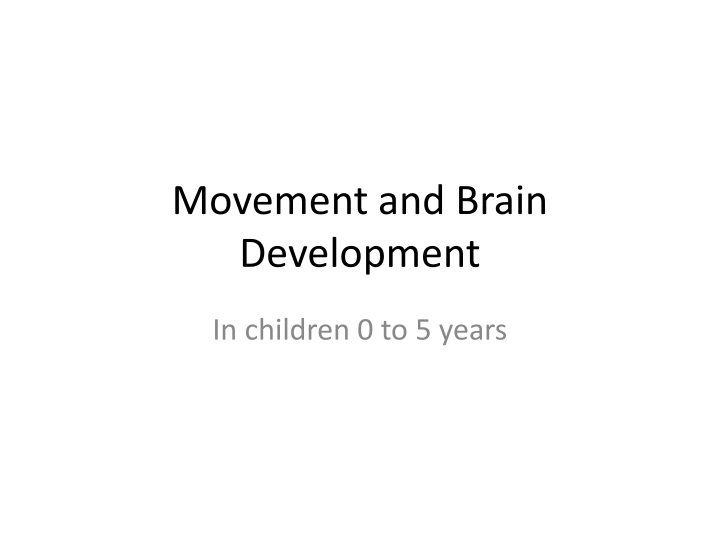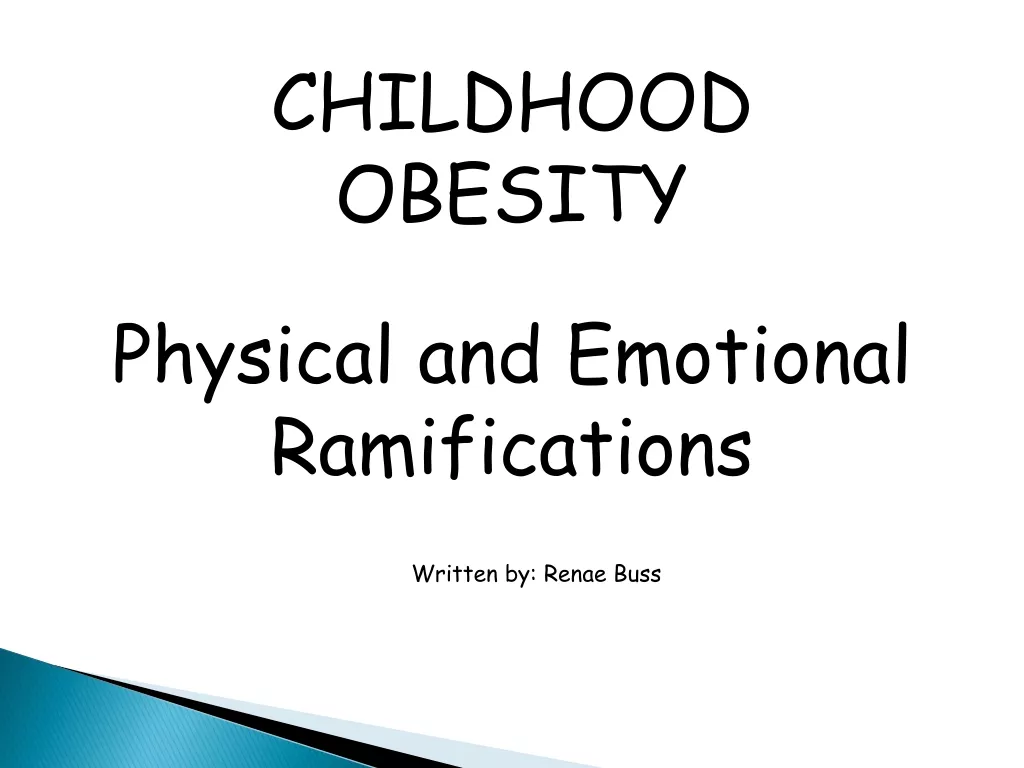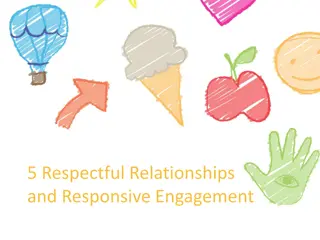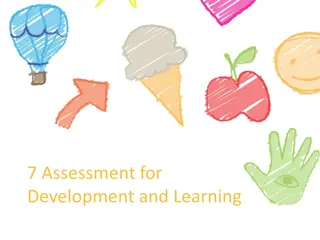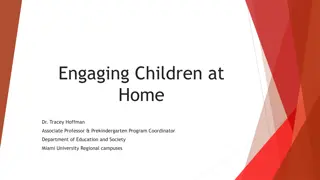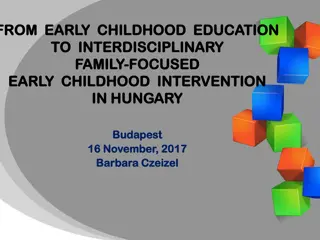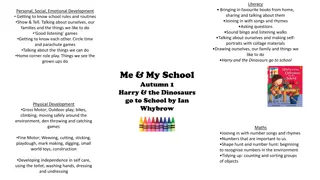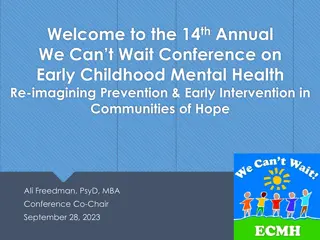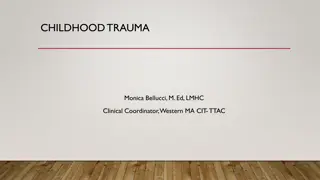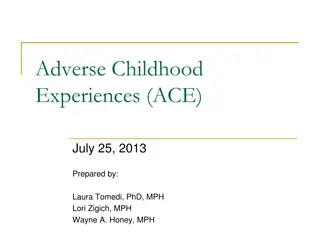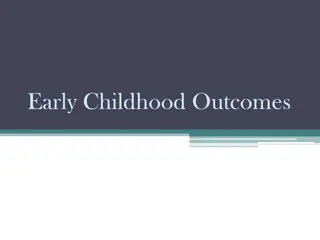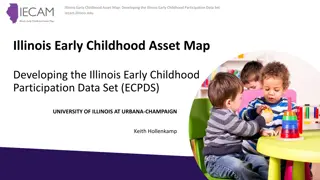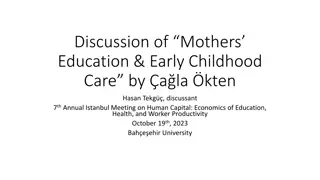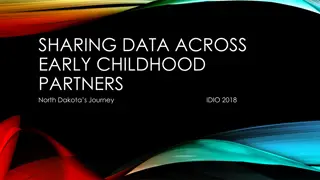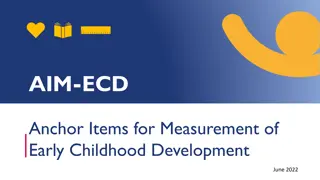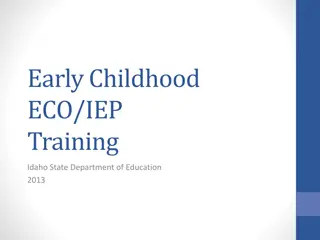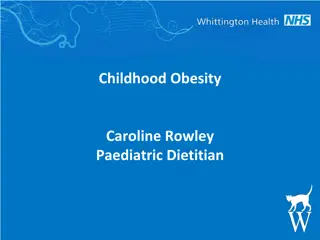Importance of Physical Activity in Early Childhood Development
Physical activity plays a crucial role in the brain development and overall well-being of children aged 0 to 5 years. Understanding the significance of different types of physical activities, creating age-appropriate movement settings, and promoting healthy habits can help in improving children's motor skills, emotional well-being, and overall health. By fostering an active lifestyle and setting positive examples, child care providers can contribute to reducing childhood obesity and promoting a healthy future for young children and their families.
Download Presentation

Please find below an Image/Link to download the presentation.
The content on the website is provided AS IS for your information and personal use only. It may not be sold, licensed, or shared on other websites without obtaining consent from the author.If you encounter any issues during the download, it is possible that the publisher has removed the file from their server.
You are allowed to download the files provided on this website for personal or commercial use, subject to the condition that they are used lawfully. All files are the property of their respective owners.
The content on the website is provided AS IS for your information and personal use only. It may not be sold, licensed, or shared on other websites without obtaining consent from the author.
E N D
Presentation Transcript
Movement and Brain Development In children 0 to 5 years
Learning Objectives 1. Discuss why physical activity is important for young children and the difference between structured and unstructured physical activity. 2. Define and demonstrate age-appropriate ways to guide children in activity and movement settings. 3. Give examples of age-appropriate activity and movement policies for your child care program. 2
Learning Objectives Continued 4. List ways to increase moderate to vigorous physical activity in the everyday child care routine. 5. Discuss the importance of adult role modeling and improving the quality of structured movement activities intentionally facilitated by adults. 6. Learn how your center can become a Missouri MOve Smart Child Care. 3
Physical activity. Its for everybody! It s about moving your body. It s about having energy. It s about enjoying life It s about feeling good. It s not about body size. 4
The Situation More than one in four preschoolers are overweight or obese Child care providers can help keep children healthy 5
Fat Stores 6
The benefits of physical activity help the whole family Handle stress better Sleep more soundly Feel more energetic Feel better about themselves Maintain healthy bones, muscles and joints Maintain a steady weight 7
Child Skill Development Fundamental Motor Skills Locomotor skills Manipulative skills Nonlocomotor skills 8
Child Skill Development Child care providers need to have a sense of direction Movement capabilities emerge due to interacting factors Development is a continuum of changes where everything matters, everything interacts, everything changes 9
Four Predictable Changes Maturation of central nervous system (CNS) Increased muscular strength and endurance Increased posture and balance Improved sensory processing 10
Gross Motor Development One to Two Year Olds Walk alone Stands on tiptoes to reach something Carry large toy while moving Walk up and down stairs holding onto support Climb into and down from furniture unassisted Kick a stationary ball Runs alone 11
Observing & Evaluating Motor Skills Each child is unique Each skill has its own developmental progression 12
Gross Motor Development TWOTO THREE YEAR OLDS Walks backward Squats to pick up toys Pushes a riding toy with feet while steering Jumps in place, two feet together Climb stairs with alternating feet, using hand rail for balance 13
Gross Motor Development Two to Three Year Olds (continued) Catches a large bounced ball against the body with arms straight Sidesteps a taped line on the floor Throws a ball or other object by pushing it with both hands Straddles a taped line on the floor 14
Gross Motor Development THREETO FOUR YEAR OLDS Walks forward along sandbox edge, watching feet Runs Jumps over objects or off a step Jumps off low step, landing on two feet Rides a tricycle using pedals 15
Gross Motor Development THREETO FOUR YEAR OLDS (CONTINUED) Climbs at least two rungs of a jungle gym Traps thrown ball against body (bending arms when catching) Avoids obstacles and people while moving Walks up and down stairs alternating feet Kicks ball forward by stepping or running up to it 16
Gross Motor Development Four To Six Year Olds Moves through an obstacle course Attempts to jump rope Hops across the playground; hops on one foot then the other Gallops and skips with ease Kicks moving ball while running 17
Physical Activity and Children Express feelings, explore, and learn about the world Focus on basic motor skills and fitness Basic motor skills = foundation for a lifetime of activity May increase children s learning ability 18
